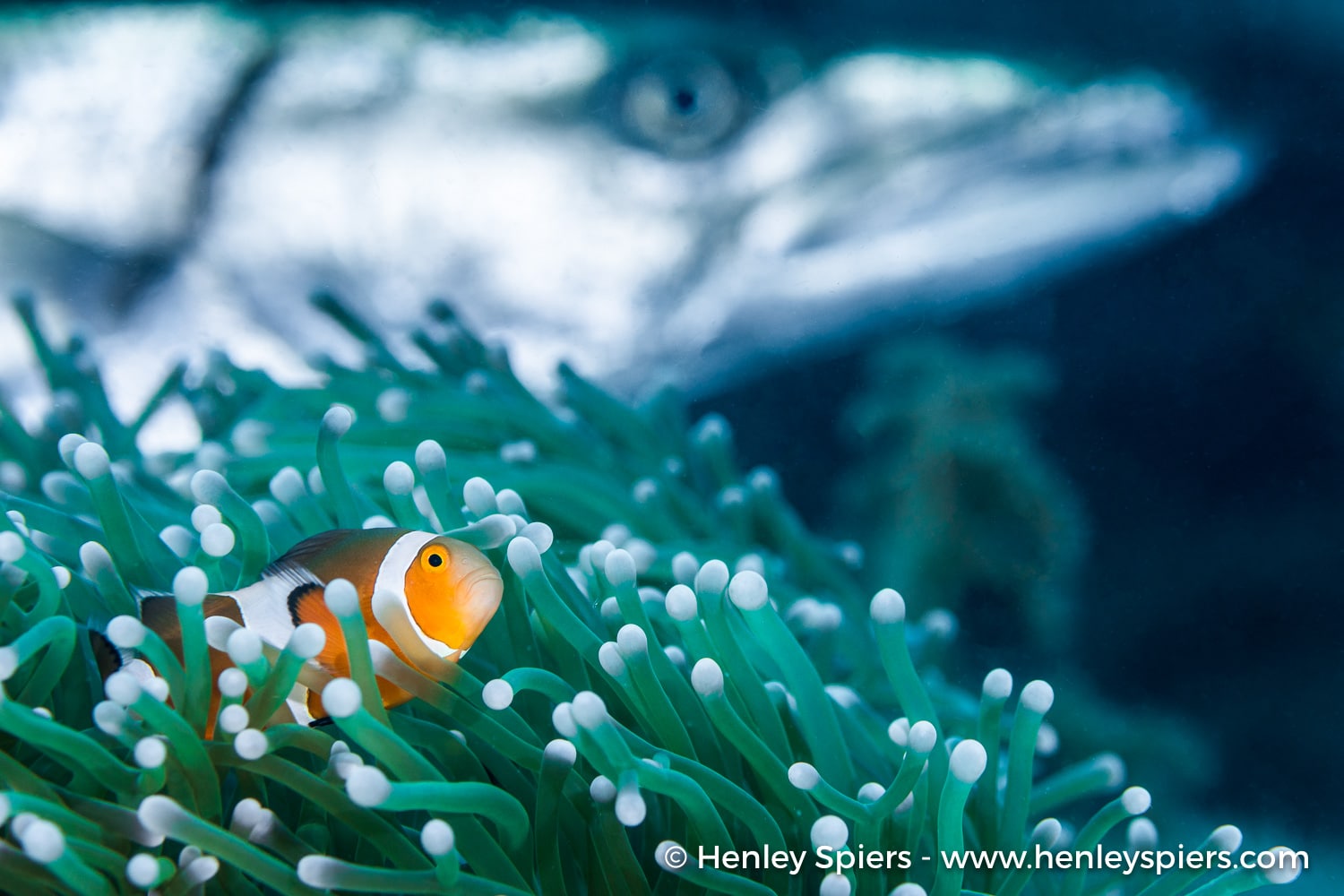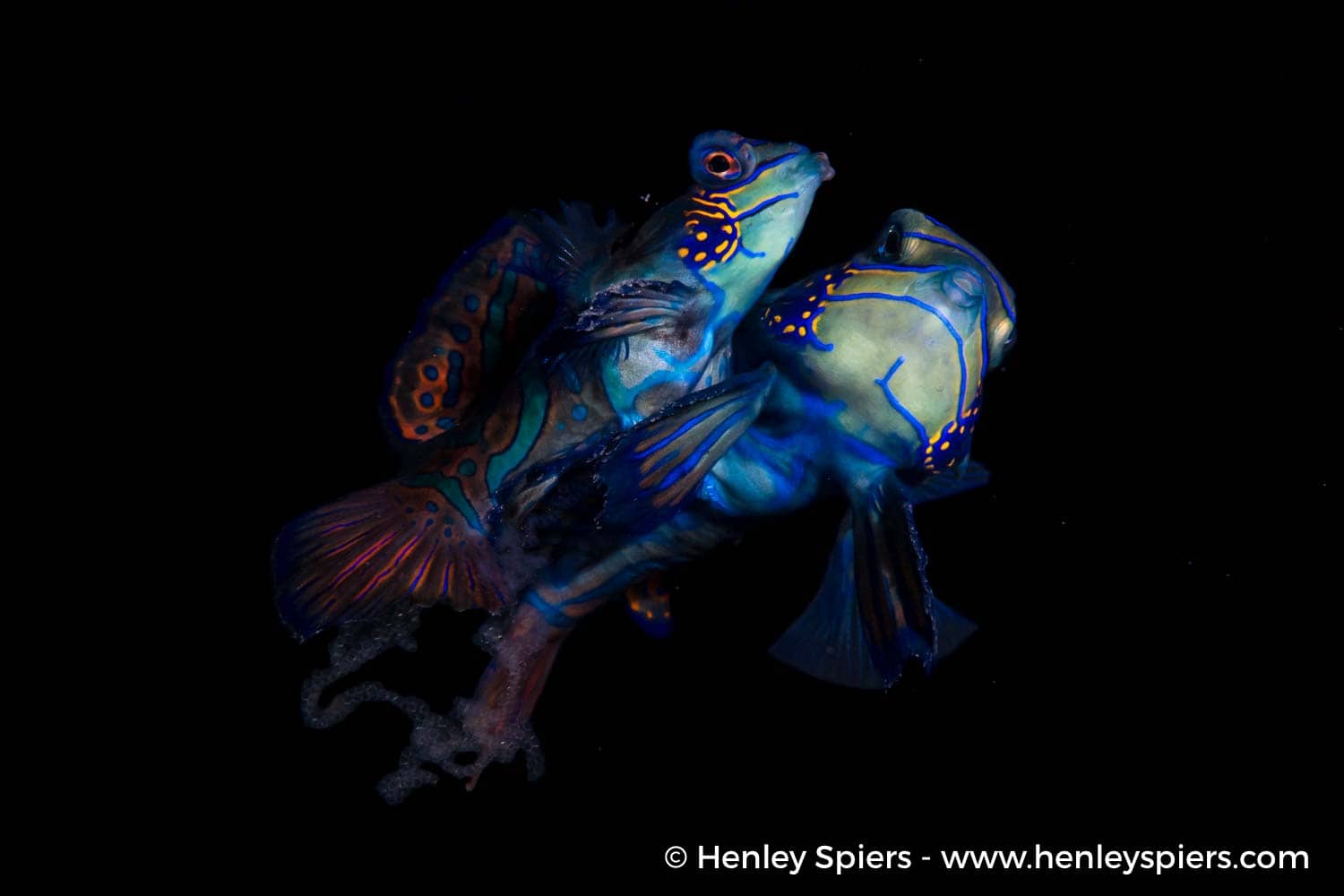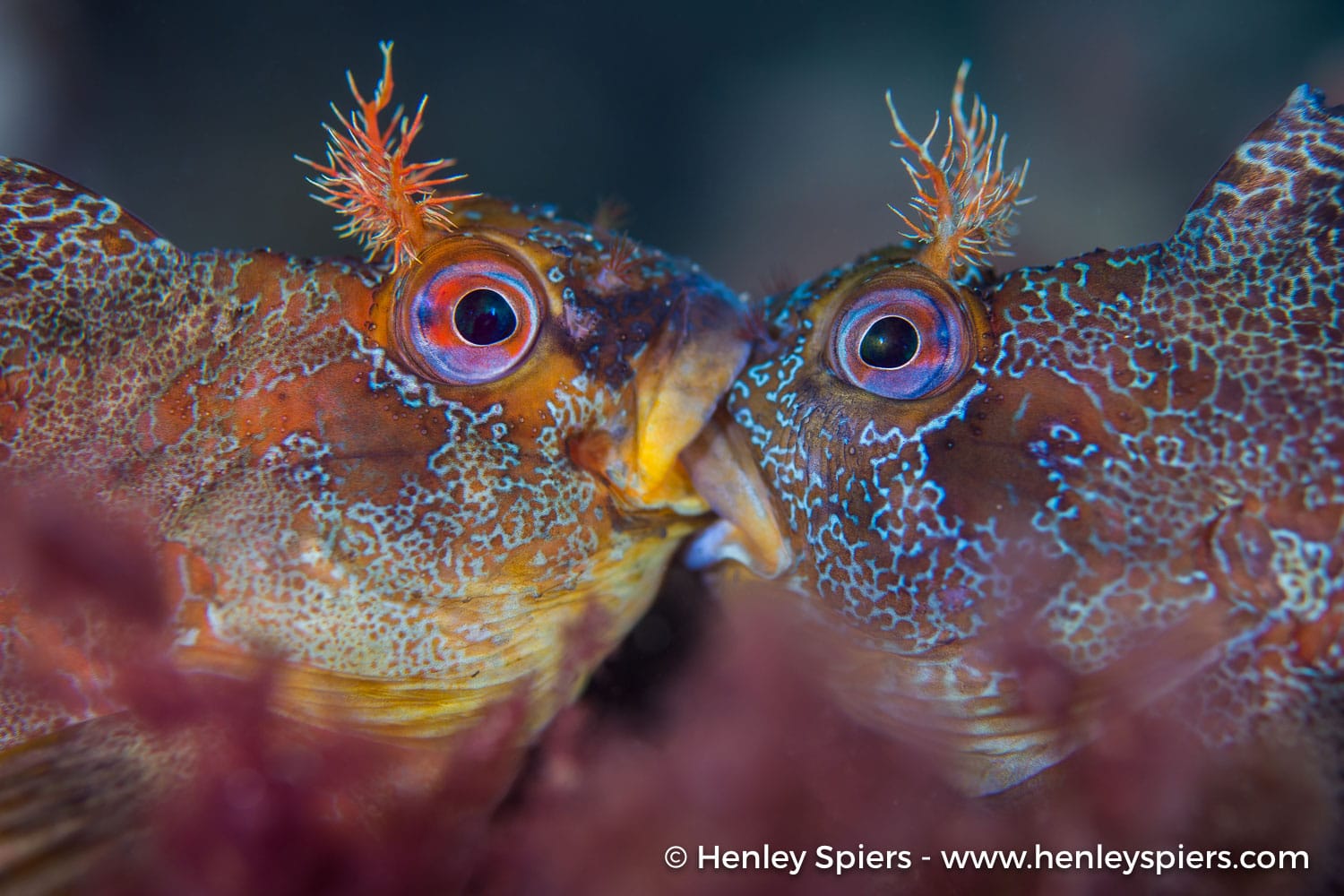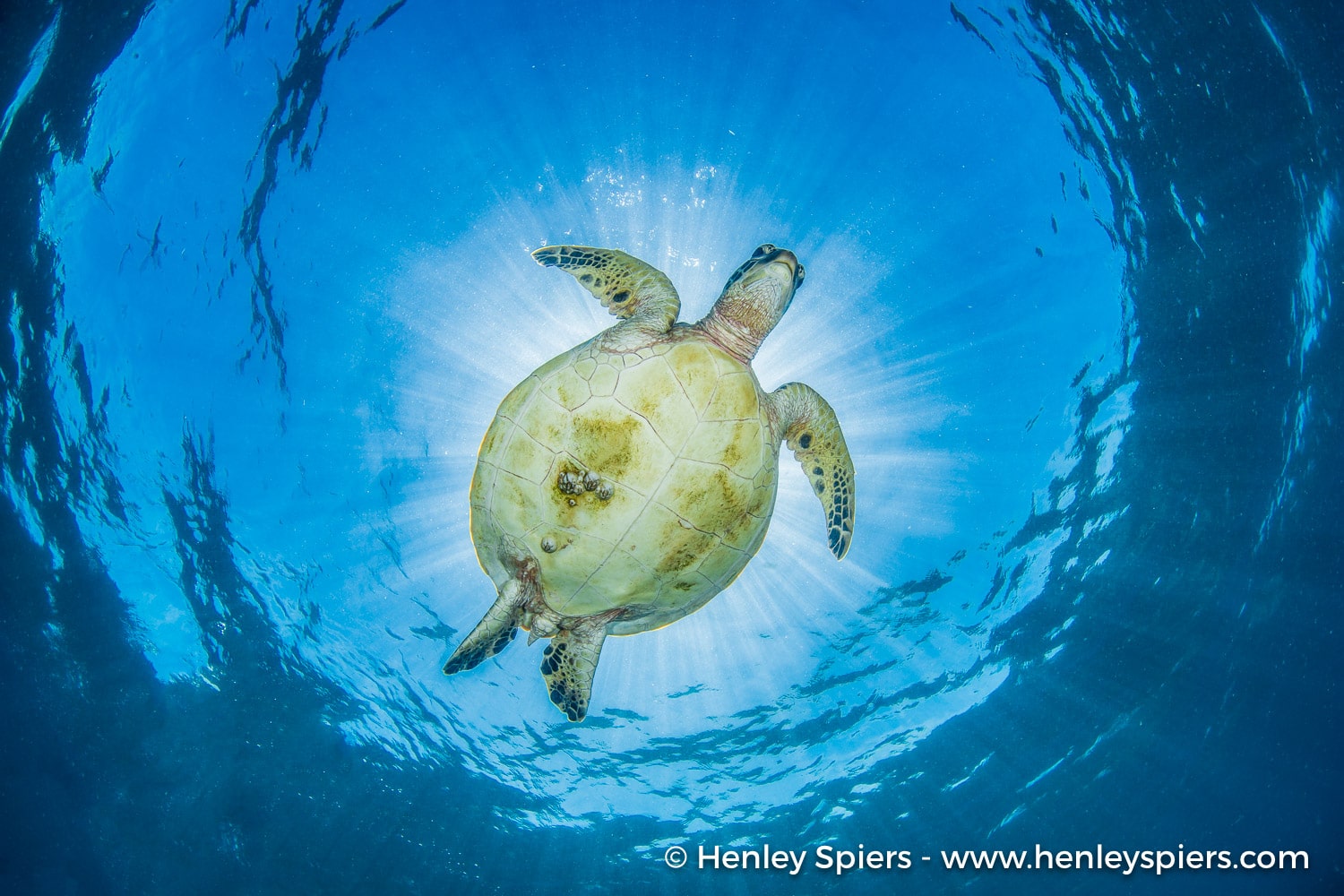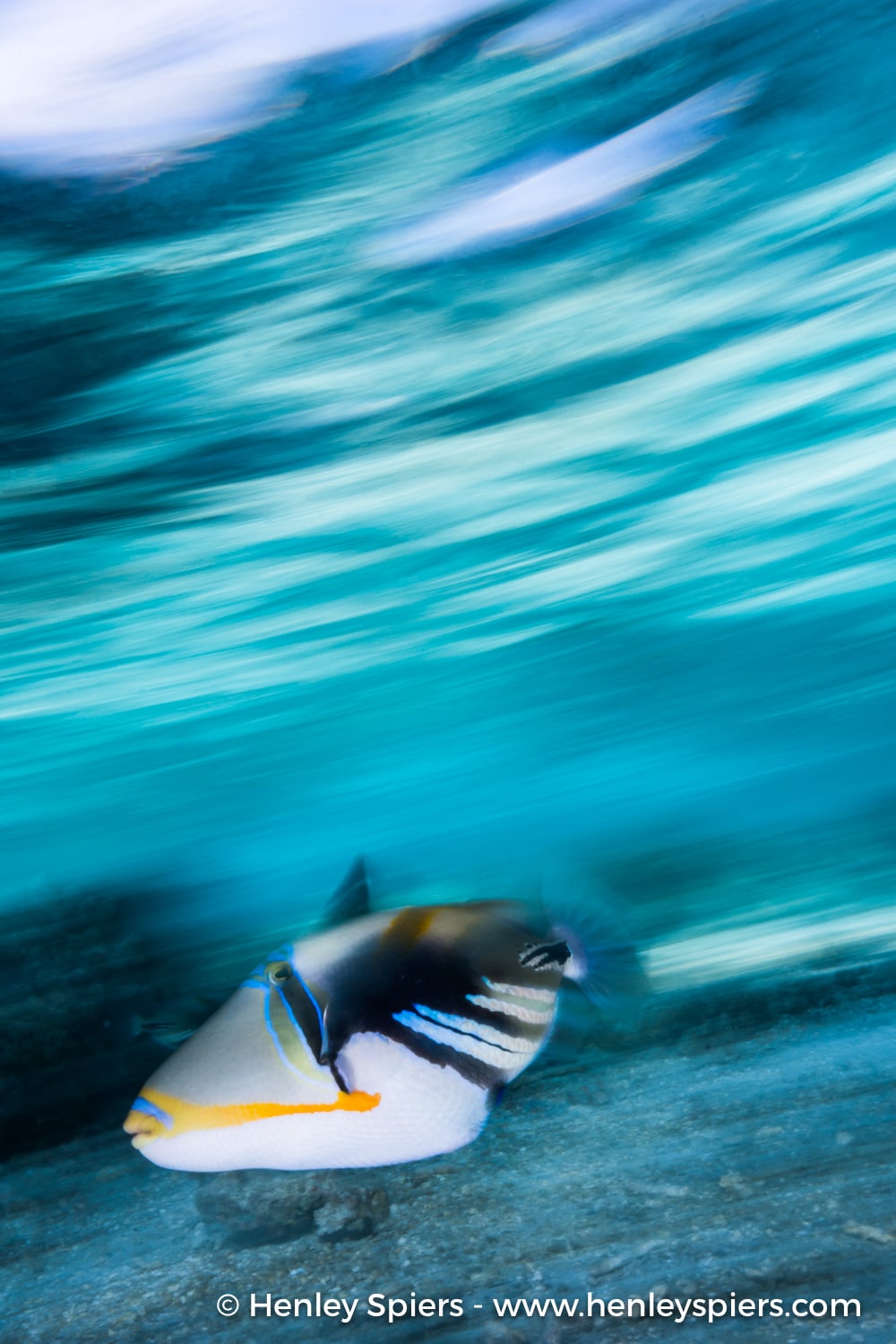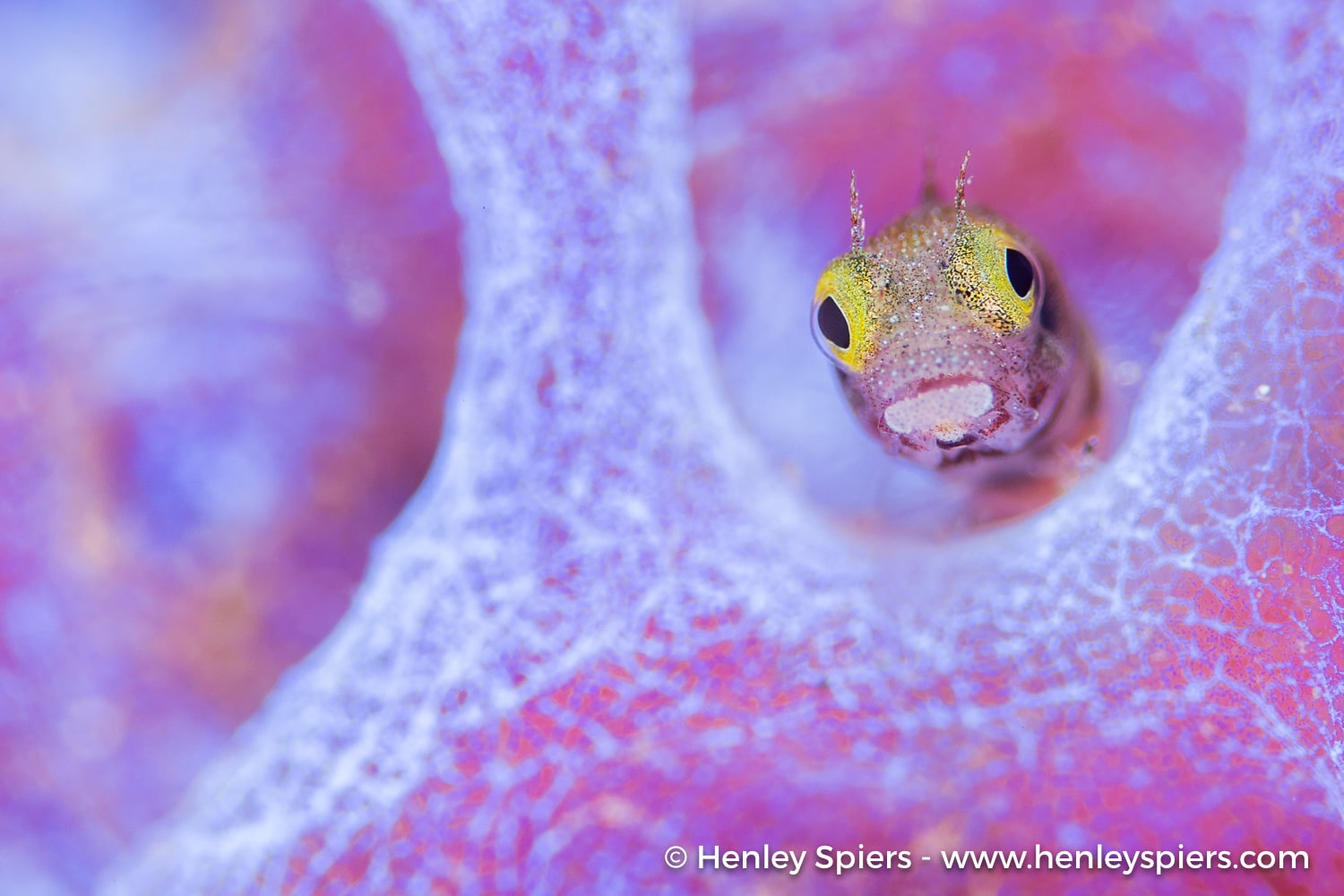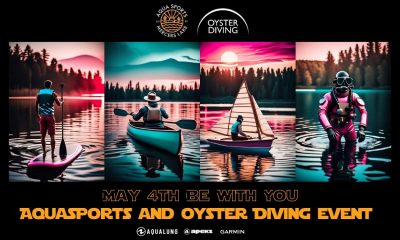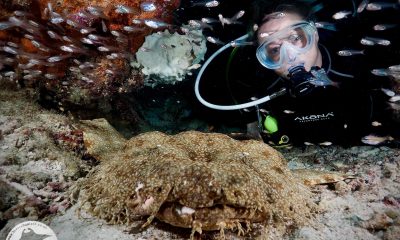News
Scubaverse Underwater Photographer Interview: Henley Spiers

In an ongoing series, Scubaverse’s Underwater Photography Editor Nick Robertson-Brown talks to underwater photographers from around the world that he admires. In this blog: Henley Spiers.
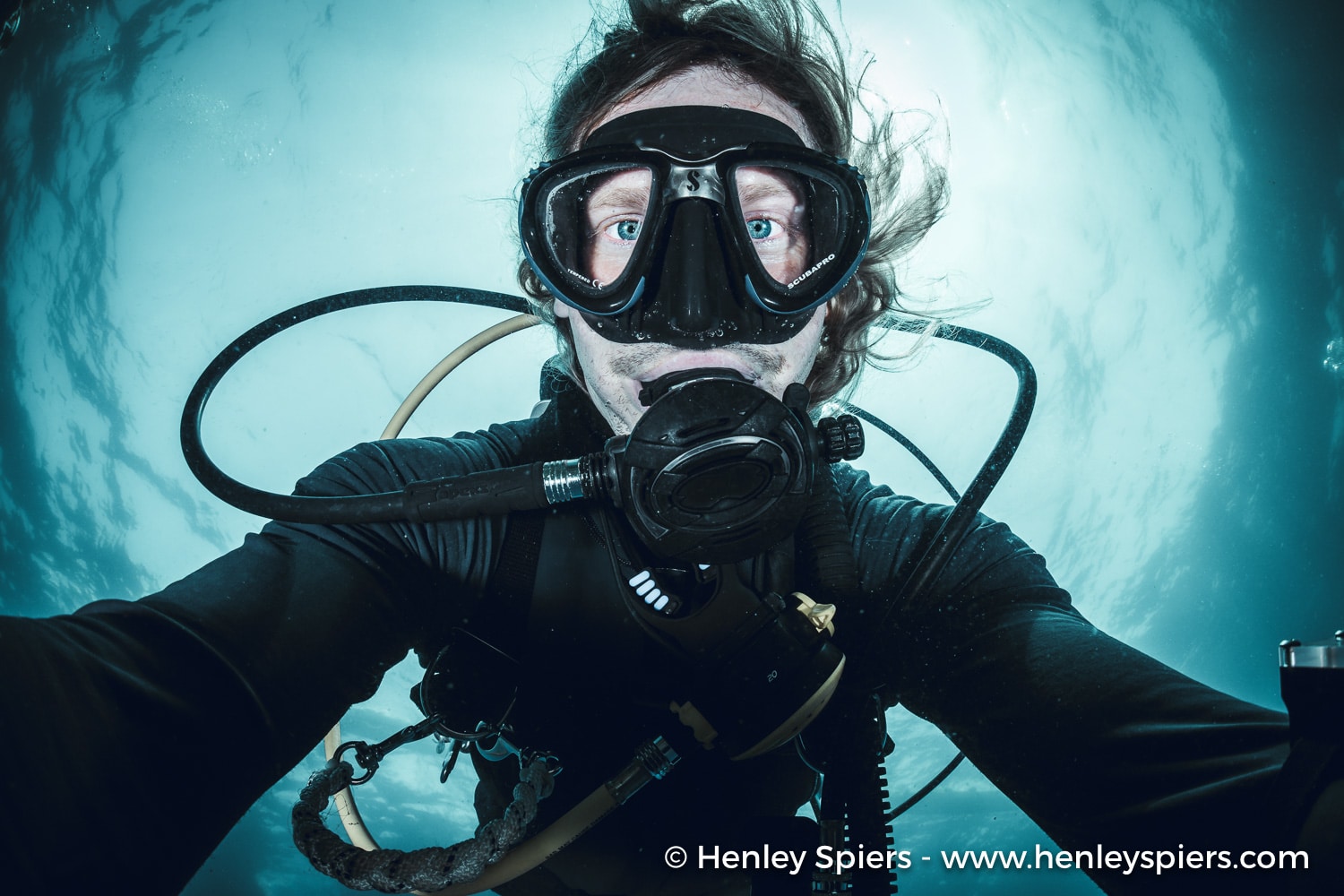 Henley Spiers’ all-consuming passion for the sea led him to quit his job in the corporate world to become a dive instructor, and then an underwater photographer. He is a regular contributor to DIVER magazine where his images can often be found on the cover. His work has been frequently awarded in competitions, including the Sony World Photography Awards, Nature’s Best and the Underwater Photographer of the Year contest. Conservation plays an important part in his philosophy and he collaborates with the Marine Conservation Society, Mission Blue and the Devon and Cornwall Wildlife Trusts. Half British and half French, he lives in Cebu, Philippines, with his wife (and favourite dive buddy) Jade and their daughter Apolline. Henley runs personalised underwater photography tours and workshops combining his love of diving, teaching and underwater photography.
Henley Spiers’ all-consuming passion for the sea led him to quit his job in the corporate world to become a dive instructor, and then an underwater photographer. He is a regular contributor to DIVER magazine where his images can often be found on the cover. His work has been frequently awarded in competitions, including the Sony World Photography Awards, Nature’s Best and the Underwater Photographer of the Year contest. Conservation plays an important part in his philosophy and he collaborates with the Marine Conservation Society, Mission Blue and the Devon and Cornwall Wildlife Trusts. Half British and half French, he lives in Cebu, Philippines, with his wife (and favourite dive buddy) Jade and their daughter Apolline. Henley runs personalised underwater photography tours and workshops combining his love of diving, teaching and underwater photography.
- www.henleyspiers.com
- Instagram: @henleyspiersphoto
- Facebook: @henleyspiersphotography
NRB: How did your underwater photography start?
HS: Well, I first picked up an underwater camera whilst working as a divemaster and then dive instructor in the Philippines and Indonesia. However, at that stage I was very much a ‘diver with a camera’ and it wasn’t until I took a trip to Lembeh that I really had my first go at underwater photography, renting a lovely Olympus mirrorless set-up and with the sole purpose of the dive being the creation of images. I caught the bug pretty quickly from there and soon invested in my own rig. When I moved to Saint Lucia to work as a the dive manager for a new dive shop I had the opportunity to really get shooting underwater on a regular basis and things snowballed fairly quickly from there!
NRB: What is your favourite u/w camera equipment (past & present) & why?
HS: I recently upgraded to the Nikon D850 and I am absolutely in love with it. The combination of super high resolution (45 MP), strong low-light performance and an ultra-fast focus system make it a dream camera for underwater photographers. I’m currently pairing it with a Nikon 28-70mm lens and the Nauticam WACP which is a groundbreaking development in underwater optics, and I’ve only just scratched the surface of what can be achieved with this beautiful bit of glass!
NRB: What would be your advice to anyone new to underwater photography?
HS: You can learn on your own, but you’ll save a lot of time and headaches by finding a good teacher. Immerse yourself in magazines, books, webpages and exhibitions and find the underwater photographers that you admire. Then get in touch with them and see what teaching options they offer, whether it be workshops or 1 to 1 sessions. Beyond that, understand that if you truly want to make progress as an underwater photographer, it must be the sole aim of your dive and dive trip. You will struggle to create memorable images if you are with a regular dive group, drifting at speed through a variety of dive sites. Either dive with other photographers or get a private guide, giving yourself the time and opportunity to create an image. Finally, and I’m quoting Alex Mustard on this, photographers are in the unusual position of being judged solely by their best work. People will only see the images you select as your best, and those are the only ones that matter. I consider it a good day if I create one image per day of diving that I am happy with – and I will usually take several hundred! So don’t beat yourself up about the ones that went wrong, that’s part of the process for underwater photographers of all abilities.
NRB: What, or who, has been your single biggest inspiration for your underwater photography?
HS: There are many underwater photographers and indeed photographers in general who inspire me, however, if pressed to choose only one, the single biggest influence has been Alex Mustard. I have attended a couple of his workshops which resulted in a step-change in my approach to the craft, and I am forever going back and dipping into his ‘Underwater Photography Masterclass’ book for tips before a shoot. He is the benchmark that I judge my own results by.
NRB: What image are you most proud of and why?
HS: I think it would have to be ‘Battle of the Tompots’, an image of two male Tompot Blennies fighting it out for mating rights under Swanage Pier. My dream images are ones that combine unique behaviour with an artistic rendition, which is easier said than done and was achieved in this shot. The best feeling in underwater photography, which can often be an exercise in patience and frustration, is when you know you got the shot, got something special. It’s a pure, natural high which gives me a buzz long after the dive is over. Fortunately, that image was also recognised more widely, with a category win in the Underwater Photographer of the Year and placing in a few other prominent contests. In fact, it was even featured as the Sunday Times ‘Photograph of the Week’! So it was really the full package and it’s the image I am most proud of.
NRB: Where is your favourite dive location, and is it for the photography?
HS: I’m not sure I’ve found it yet, I’ve been to many beautiful spots but I’m always excited for the next expedition. This November, I’m visiting the Sea of Cortez in Mexico and am tremendously excited for all of the big animals over there, from sea lions to whale sharks and, if we get lucky, even some marlin! These days, unless I’m teaching, I never dive without a camera so those two things are inextricably linked.
NRB: What are you views on marine life manipulation, moving subjects?
HS: I find it upsetting but I think there needs to be an understanding of how it happens before you vilify all those involved. First off, there has been a drastic increase in the number of divers and underwater photographers over the last few decades. The understanding of how we impact the environment has grown hugely in that time but diving and photography standards have not quite caught up. Look back at videos of Jacques Cousteau and you will see behaviour which would be widely denounced today. However, there is no doubt in my mind that he and his team were pioneers and, overall, did far more good for the oceans than harm. They were simply less aware than we are today of the human impact on marine life and marine ecosystems.
Likewise, when there were only a few hundred underwater photographers in the world, moving subjects and kneeling on the coral was commonly practiced. Those photographers created some beautiful images which set the standard and would then be emulated by the next generation. There is this cascading effect by the standard-bearers in the diving and underwater photography industry which is what, in my opinion, has driven the bulk of marine life manipulation. People are trying to emulate the images they see their favourite underwater photographers take. In some cases, marine life manipulation makes that easier, and so the dive guides will facilitate that process to ensure their guests’ happiness. With the volume of underwater photographers pursuing the same type of marine life these days, that problem escalates quickly.
The problem is not with the dive guides – they are in a service industry and purely trying to give the customer what he/she wants. You have to go further up the chain and look at what images are being held up as the gold standard in underwater photography. Prominent underwater photographers and judges in competitions should think very carefully about what they are putting out there to the general public. Ultimately, the biggest correction to critter manipulation will happen once the images awarded are ones where there isn’t even the hint of marine life manipulation. Now, there is some frustration for photographers there because sometimes you genuinely capture a very unusual behaviour or a critter in an unusual position. However, underwater photographers (especially those in prominent positions) should not shout about or share images which could have been more easily achieved with manipulation. I think that is how you start to stem the flow when it comes to this issue.
NRB: What do you look for when you are making your images?
HS: I guess I’m looking for three things: subject, behaviour and background. I look out for engaging subjects and I look out for any signs of unusual behaviour (cleaning, mating, fighting, flirting…etc) – both of those probably seem pretty obvious. I think what can often be neglected is looking out for good background, such as a colourful sponge, sometimes you are best off seeking the background first and then finding the subject.
NRB: What motivates you to take u/w photos?
HS: At heart it is an all-encompassing passion for the sea and being able to share some of what I see and feel underwater with a wider audience. I fell in love with diving long before I first held a camera and, during that time, would wax lyrical about how incredible it was down there to anyone who would listen. With underwater photography, I have better way than words of communicating the wonders of the marine world.
NRB: If you could photograph any one thing/place what or where would that be?
HS: Hmmm well if I had three wishes, genie style, I would go for: whale sharks mating, leatherback turtles mating and thresher sharks hunting, ideally all in the same frame!
Find out more about Henley Spiers by clicking here.
Blogs
Northern Red Sea Reefs and Wrecks Trip Report, Part 2: Wall to Wall Wrecks
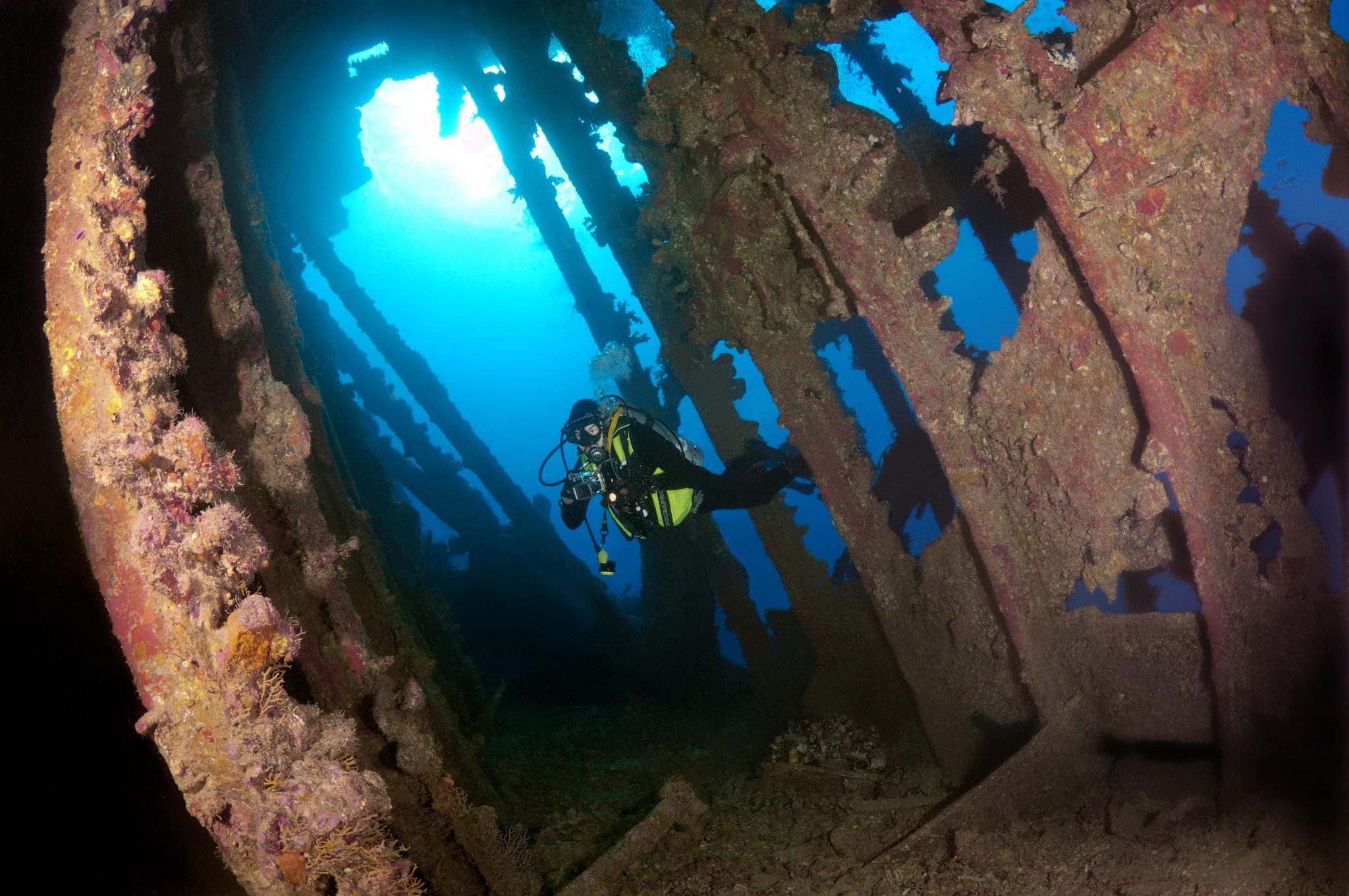
Jake Davies boards Ghazala Explorer for an unforgettable Red Sea diving experience…
The second day’s diving was a day full of wreck diving at Abu Nuhas, which included the Chrisoula K, Carnatic, and Ghiannis D. The first dive of the day was onto the Chrisoula K, also known as the wreck of tiles. The 98m vessel remains largely intact where she was loaded with tiles which can be seen throughout the hold. The stern sits at 26m and the bow just below the surface. One of the highlights of the wreck is heading inside and seeing the workroom where the machinery used for cutting the tiles are perfectly intact. The bow provided some relaxing scenery as the bright sunlight highlighted the colours of the soft coral reef and the many reef fish.
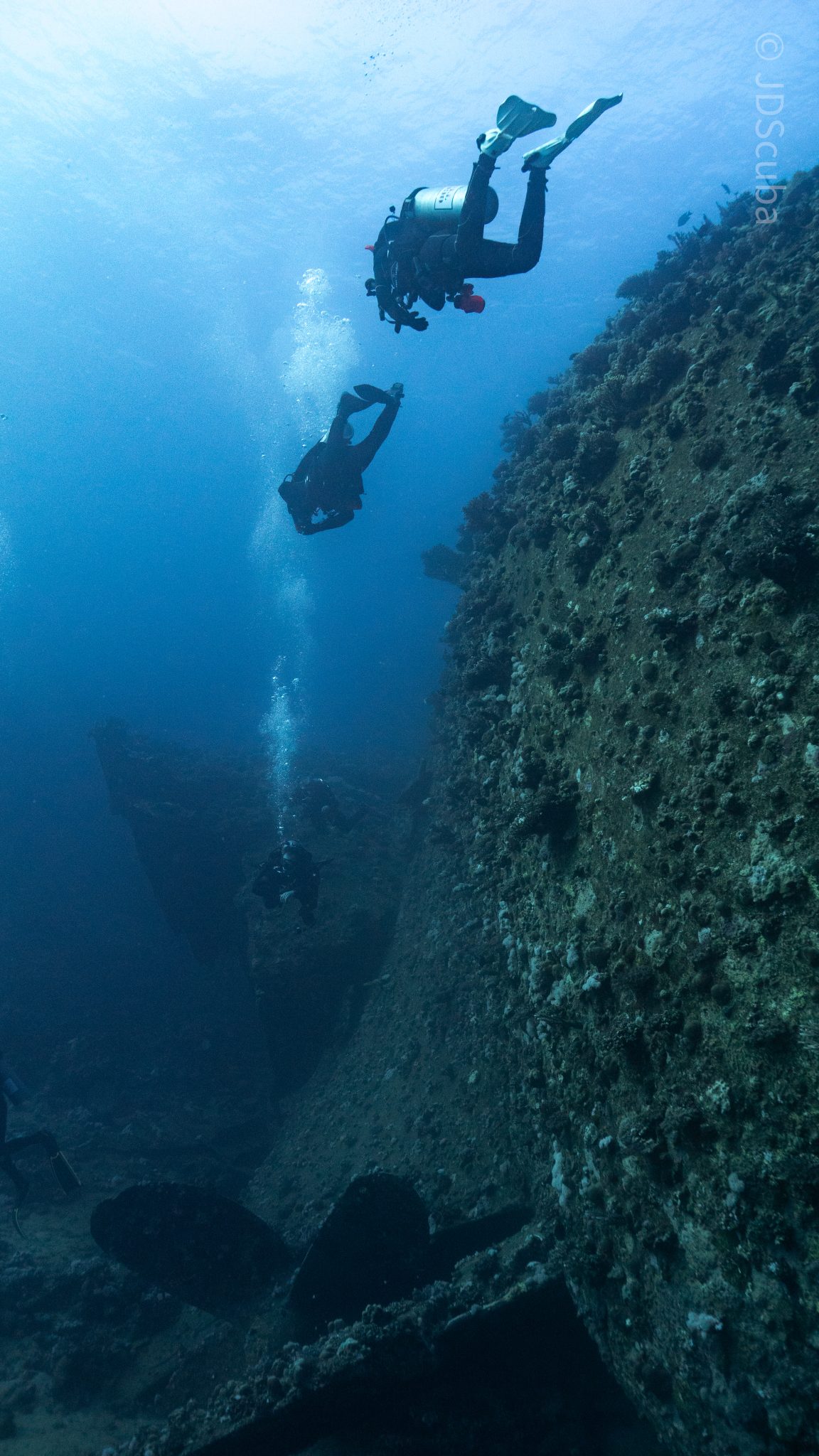
Following breakfast, we then headed to the next wreck, which was the Carnatic. The Carnatic is an 89.9m sail steamer vessel that was built in Britain back in 1862. She ran aground on the reef back in 1869 and remains at 27m. At the time, she was carrying a range of items, including 40,000 sterling in gold. An impressive wreck where much of the superstructure remains, and the two large masts lay on the seafloor. The wooden ribs of the hull provide structures for lots of soft corals, and into the stern section, the light beams through, bouncing off the large shoals of glass fish that can be found using the structure as shelter from the larger predators that are found outside of the wreck.
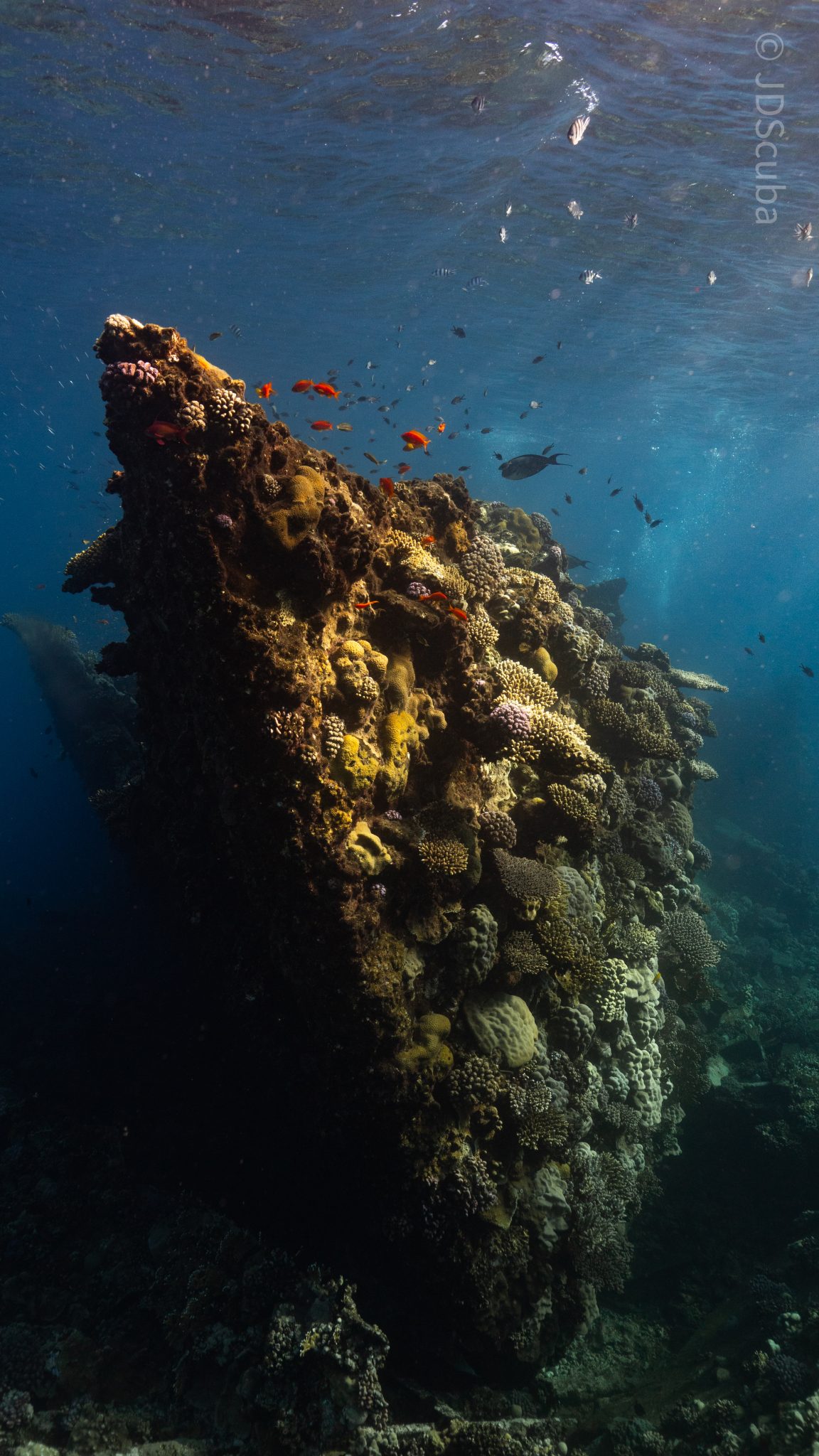
The final wreck at Abu Nuhas was the Ghiannis D, originally called ‘Shoyo Maru,’ which was 99.5m long and built in Japan back in 1969 before becoming a Greek-registered cargo ship in 1980. The ship then ran aground on the reef on April 19th, 1983, and now sits at the bottom at a depth of 27m. Heading down the line, the stern of the ship remains in good condition compared to the rest of the hull. The highlight of the wreck, though, is heading into the stern section and down the flights of stairs to enter the engine room, which remains in good condition and is definitely worth exploring. After exploring the interior section of the ship, we then headed over to see the rest of the superstructure, where it’s particularly interesting to see the large table corals that have grown at the bow relatively quickly considering the date the ship sank. After surfacing and enjoying some afternoon snacks, we made sure everything was strapped down and secured as we would be heading north and crossing the Gulf of Suez, where the winds were still creating plenty of chop.
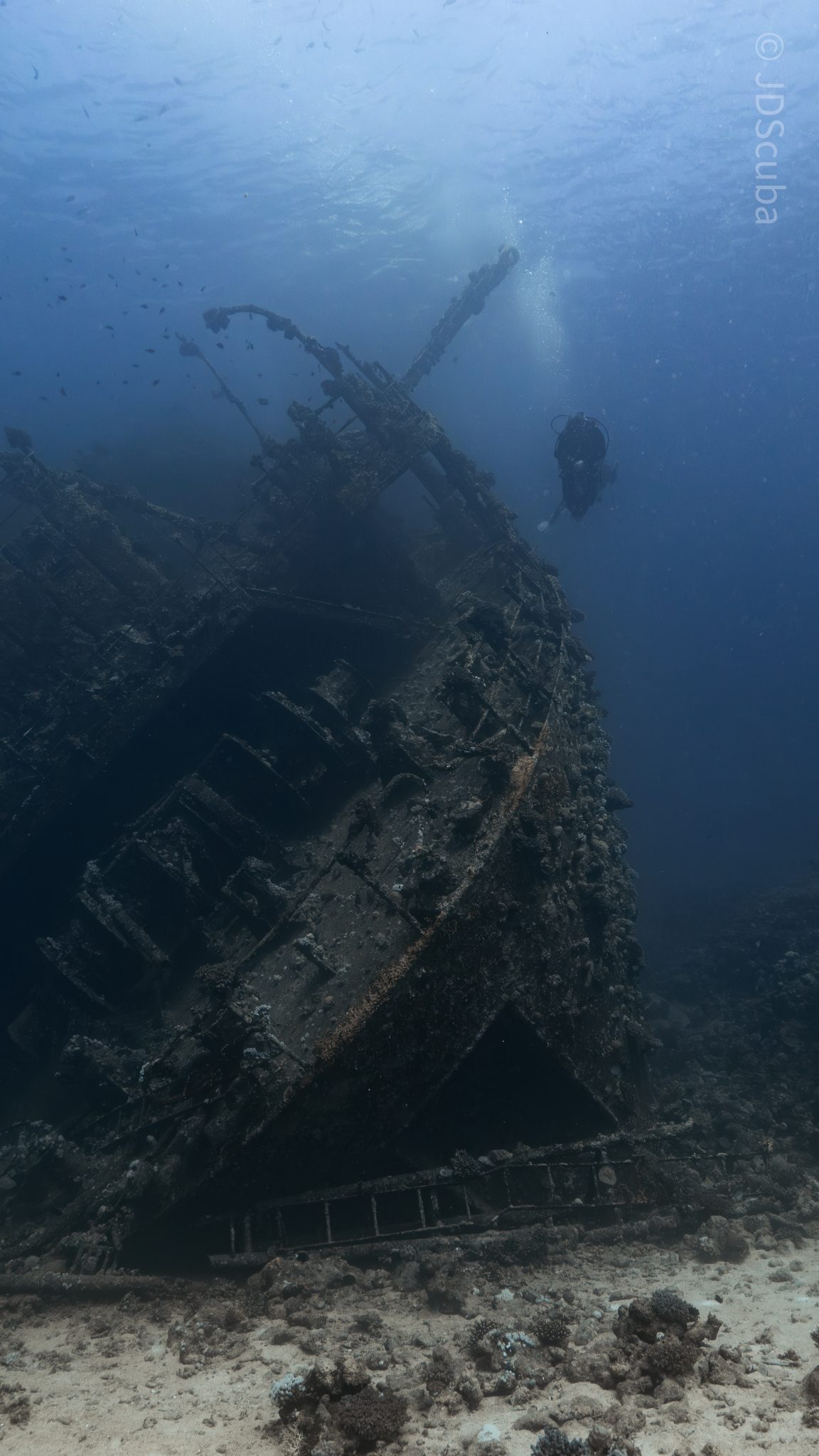
The next morning, it was a short hop to Ras Mohammed Nature Reserve for the next couple of days of diving. The 6am wake-up call came along with the briefing for the first site we would be diving, which was Shark & Yolanda. The low current conditions allowed us to start the dive at Anemone City, where we would drift along the steep, coral-filled wall. These dives involved drifts, as mooring in Ras Mohammed wasn’t allowed to protect the reefs. As a dive site, Shark & Yolanda is well-known and historically had a lot of sharks, but unfortunately not so many in recent years, especially not so early in the season. However, there was always a chance when looking out into the blue.
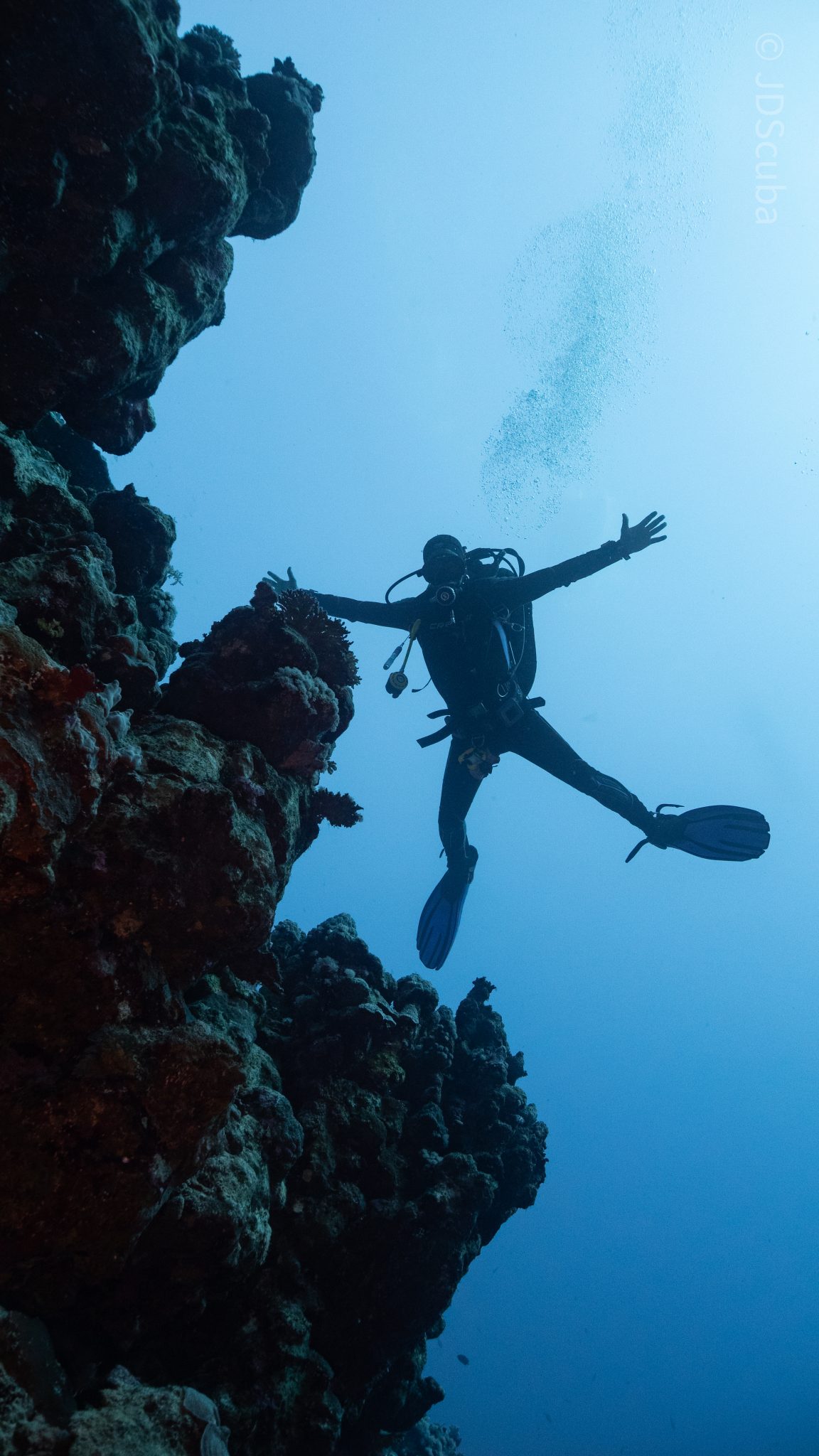
The gentle drift took us along the steep walls of the site, with plenty of anemone fish to be seen and a huge variety of corals. It wasn’t long into the dive before we were accompanied by a hawksbill turtle, who drifted with us between the two atolls before parting ways. Between the two reefs, the shallow patch with parts of coral heads surrounded by sand provided the chance to see a few blue-spotted stingrays that were mainly resting underneath the corals and are always a pleasure to see. With this being the morning dive, the early sunlight lit up the walls, providing tranquil moments. Looking out into the blue, there was very little to be seen, but a small shoal of batfish shimmering underneath the sunlight was a moment to capture as we watched them swim by as they watched us.
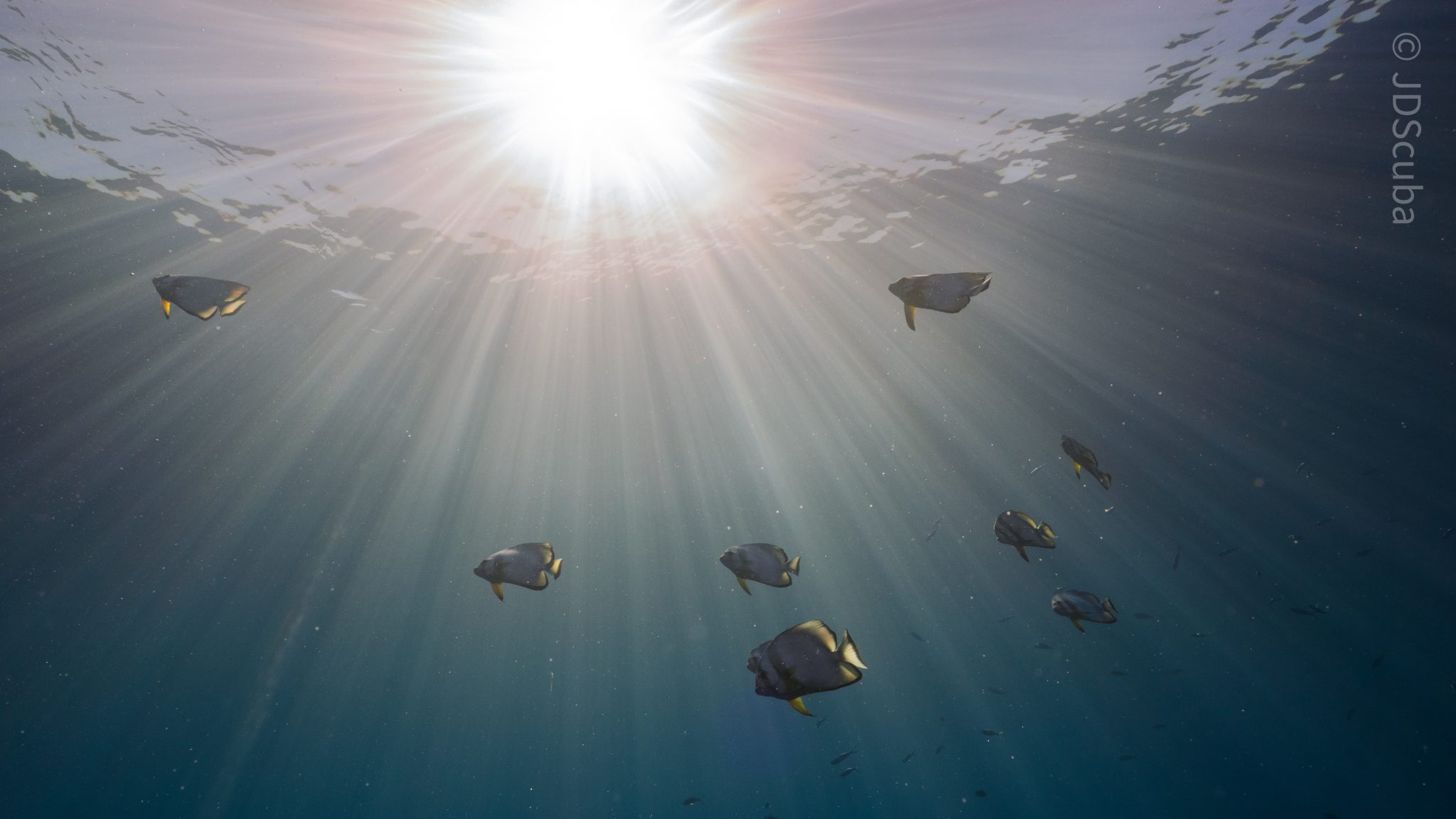
Towards the end of the dive, we stopped at the wreck of the Jolanda where the seafloor was scattered with toilets from the containers it was carrying. This provided a unique site to make a safety stop, which was also accompanied by a large barracuda slowly swimming by, along with a hawksbill turtle calmly swimming over the reef as the sun rays danced in the distance.
For the next dive, we headed north to the Strait of Tiran to explore the reefs situated between Tiran Island and Sharm El Sheik, which were named after the British divers who had found them. We started on Jackson before heading to Gordons Reef, where we also did the night dive. All the atolls at these sites provided stunning, bustling coral reefs close to the surface and steep walls to swim along, which always provided the opportunity to keep an eye out for some of the larger species that can be seen in the blue. Midwater around Jackson Reef was filled with red-toothed triggerfish and shoals of banner fish, which at times were so dense that you couldn’t see into the blue. Moments went by peacefully as we enjoyed the slow drift above the reef, watching these shoals swim around under the mid-afternoon sun.
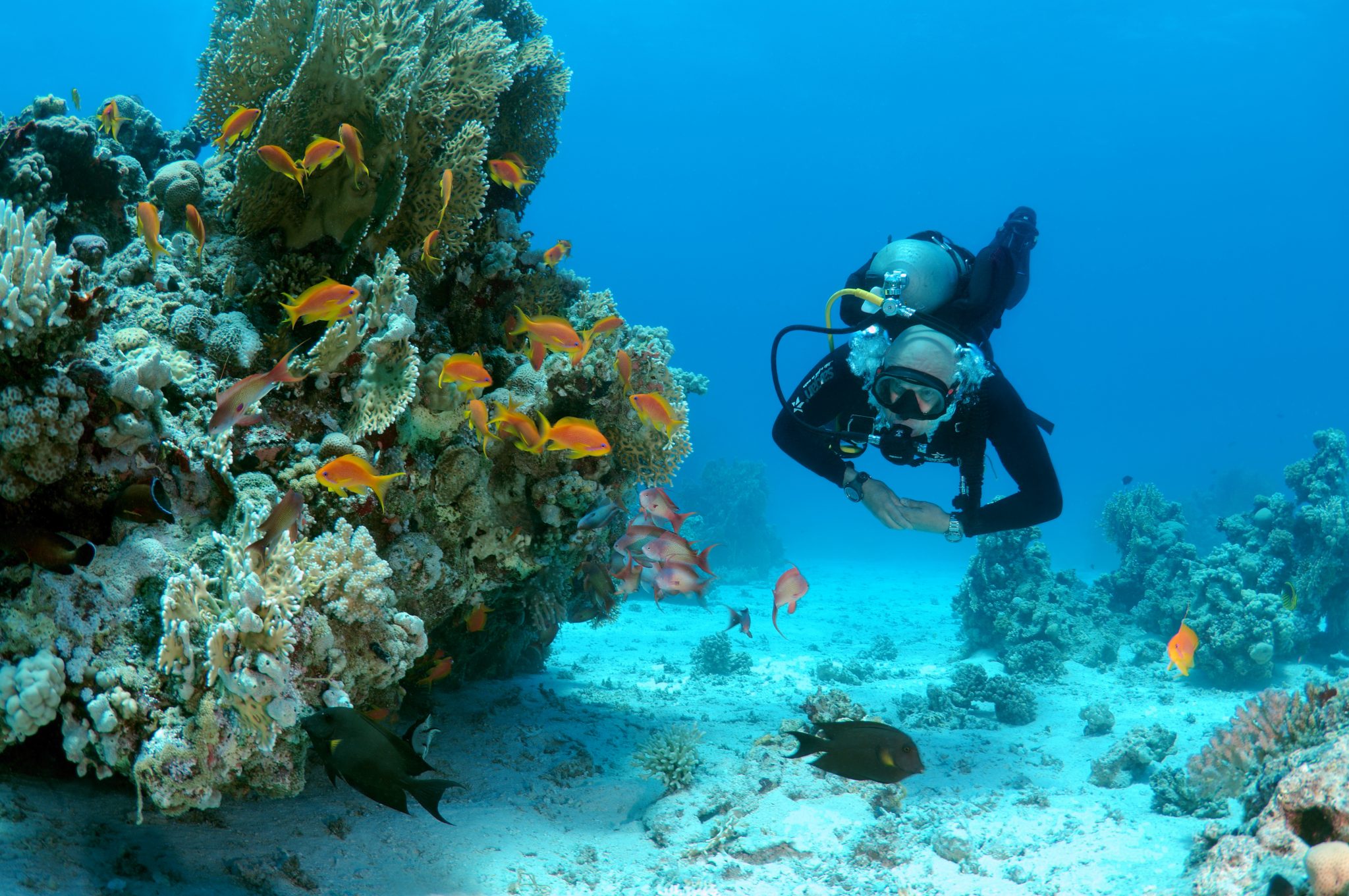
The night dive at Gordon’s Reef was mainly among the stacks of corals surrounded by sand, which was great to explore under the darkness. After some time circling the corals, we came across what we were really hoping to find, and that was an octopus hunting on the reef. We spent the majority of the dive just watching it crawl among the reef, blending into its changing surroundings through changes in colour and skin texture. It’s always so fascinating and captivating to watch these incredibly intelligent animals, in awe of their ability to carry out these physical changes to perfectly blend into the reef. Before we knew it, it was time to head back to the boat to enjoy a well-deserved tasty dinner prepared by the talented chefs onboard.
Check in for the 3rd and final part of this series from Jake tomorrow!
To find out more about the Northern Red Sea reef and wrecks itineraries aboard Ghazala Explorer, or to book, contact Scuba Travel now:
Email: dive@scubatravel.com
Tel: +44 (0)1483 411590
Photos: Jake Davies / Avalon.Red
Marine Life & Conservation
Double Bubble for Basking Sharks

 The Shark Trust is excited to announce that, for two more days only, all donations, large or small, will be doubled in the Big Give Green Match Fund!
The Shark Trust is excited to announce that, for two more days only, all donations, large or small, will be doubled in the Big Give Green Match Fund!
Donate to Basking in Nature: Sighting Giants
The Shark Trust is hoping to raise £10k which will be doubled to £20k. This will go towards Basking in Nature: Sighting Giants. And they need YOUR help to reach they’re goal.
The Shark Trust’s citizen science project is to monitor and assess basking sharks through sightings; encouraging data collection, community engagement, and promoting nature accessibility. This initiative aims to enhance health and wellbeing by fostering a deeper connection with British Sharks.
Campaign Aims
- Increase citizen science reporting of Basking Sharks and other shark sightings to help inform shark and ray conservation.
- Provide educational talks about the diverse range of sharks and rays in British waters and accessible identification guides!
- Create engaging and fun information panels on how to ID the amazing sharks and rays we have on our doorstep! These can be used on coastal paths around the Southwest. With activities and information on how you can make a difference for sharks and rays!
- Promote mental wellbeing through increasing time in nature and discovering the wonders beneath the waves!
Donate, and double your impact. Click Here
-

 News3 months ago
News3 months agoHone your underwater photography skills with Alphamarine Photography at Red Sea Diving Safari in March
-

 News3 months ago
News3 months agoCapturing Critters in Lembeh Underwater Photography Workshop 2024: Event Roundup
-

 Marine Life & Conservation Blogs2 months ago
Marine Life & Conservation Blogs2 months agoCreature Feature: Swell Sharks
-

 Blogs2 months ago
Blogs2 months agoMurex Resorts: Passport to Paradise!
-

 Blogs2 months ago
Blogs2 months agoDiver Discovering Whale Skeletons Beneath Ice Judged World’s Best Underwater Photograph
-

 Gear Reviews2 months ago
Gear Reviews2 months agoGear Review: Oceanic+ Dive Housing for iPhone
-

 Marine Life & Conservation2 months ago
Marine Life & Conservation2 months agoSave the Manatee Club launches brand new webcams at Silver Springs State Park, Florida
-

 News3 months ago
News3 months agoWorld’s Best Underwater Photographers Unveil Breathtaking Images at World Shootout 2023


